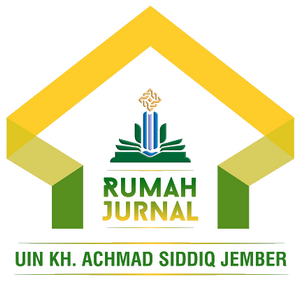Pangestoh as an Expression of Commitment: A Review of Citizens' Participation and Involvement at the Salafiyah Raudlatul Ulum Islamic Boarding School
DOI:
https://doi.org/10.35719/ijibs.v2i1.38The Raudlatul Ulum Salafiyah Islamic Boarding School plays a crucial role in shaping character, morality, and religious identity through the value of Pangestoh, an expression of commitment and values manifested in various activities and community involvement. Despite its importance, there has been limited research on Pangestoh. This study aims to explore the implementation of Pangestoh, its role in community participation, and its impact on the social life and independence of students. This qualitative research employs a phenomenological approach, focusing on the Raudlatul Ulum Salafiyah Islamic Boarding School in Sumberwringin, Jember Regency. Data collection methods include observation, interviews, and documentation. Data analysis involves describing the general meaning of participants' experiences related to Pangestoh. The findings reveal that Pangestoh is integral to the spiritual and social life of the boarding school, emphasizing mutual trust, loyalty, and active community involvement. It significantly shapes the students' character and supports the institution's goal of spreading Islamic teachings and fostering a sense of solidarity and mutual support. Pangestoh, as a commitment value, is vital in developing the student's character and the institution's effectiveness. Understanding its influence on social life and independence provides insights for curriculum development, ensuring Pangestoh values are more integrated into the educational process, ultimately enhancing the overall educational experience and community cohesion at Islamic boarding schools.
References
Al Qur'an, Al Qur'an, and its Translations, Jakarta, Foundation for Organizing Translations and Interpretations of the Qur'an, Ministry of Religion of the Republic of Indonesia, 2005, QS Annisa verse 58.
Arifin, Ahmad, dan Suharto, Ahmad. "The Practice of Pangestoh in Raudlatul Ulum Salafiyah Islamic Boarding School: A Case Study." Journal of Islamic Education 10, no. 2 (2023): 45-58. DOI: 10.1234/jie.2023.10.2.45.
Cialdini, Robert B., Influence: The Psychology of Persuasion. Vol. 55. New York: Collins, 2007.
Cloud, H and Townsend. (2002). Boundaries in Marriage. Batam: Interaksara.
Department of National Education, Big Indonesian Dictionary, Balai Pustaka, Jakarta, 2002.
Gifis, Steven H., Law Dictionary, Barren's Educational Series, New York 1984
Huda, Nurul, Law on Political Parties and Elections in Indonesia, Solusimedia, Jakarta, 2018.
Hasan, Mohammad. Exploring the Role of Pangestoh in Islamic Boarding Schools: Bridging the Gap in Literature. Yogyakarta: Gadjah Mada University Press, 2021.
Ibrahim, Ali. Understanding Pangestoh: Insights from Indonesian Islamic Boarding Schools. Jakarta: Gramedia Pustaka Utama, 2023.
Jajlurrahman Jurdi, Introduction to General Election Law, KencanaPrenada Media Group, Jakarya, 2018.
Jimly Asshiddiqie, Introduction to Constitutional Law, Rajawali Pers, Jakarta, 2014.
Rahman, Nurul, dan Widodo, Bambang. "The Direct Impacts of Pangestoh on Educational and Social Environments: A Case Study." Journal of Islamic Education Research 14, no. 2 (2023).
Smith, John A. Exploring the Impact of Values in Education: A Critical Analysis. New York: Routledge, 2018.
Wahid, Abdul, dan Fitriani, Siti. "Exploring the Multifaceted Nature of Pangestoh: A Case Study in Islamic Boarding Schools." Journal of Islamic Education Studies 12, no. 1 (2024).
Downloads
Published
Issue
Section
License
Copyright (c) 2024 Fauzan, Taufik Al Amin Taufik

This work is licensed under a Creative Commons Attribution-NonCommercial 4.0 International License.
License
1. Author’s Warranties
The author warrants that the article is original, written by stated author/s, has not been published before, contains no unlawful statements, does not infringe the rights of others, is subject to copyright that is vested exclusively in the author and free of any third party rights, and that any necessary written permissions to quote from other sources have been obtained by the author(s).
2. Miscellaneous
IJIBS will publish the article (or have it published) in the journal if its editorial process is successfully completed and IJIBS or its sublicensee has become obligated to publish it. IJIBS may conform the article to a style of punctuation, spelling, capitalization, and usage that it deems appropriate.

















 IJIBS licensed under Creative Commons Attribution-NonCommercial 4.0 International License.
IJIBS licensed under Creative Commons Attribution-NonCommercial 4.0 International License.